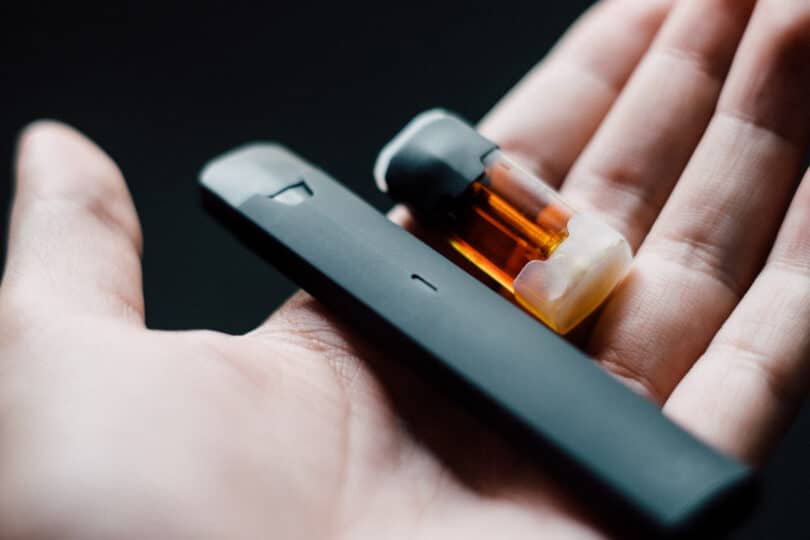When people buy products, especially in a developed country like the US or UK, they have the logical expectation that the product will contain, or not contain, certain ingredients, based on the product labeling. But lately we’re seeing a rise of mislabeled or contaminated products that are causing issues for consumers. The most recent story to hit the airwaves – nicotine-free vapes sold on Amazon that do contain nicotine. Let’s take a closer look.
What’s the news?
A recent investigation by The Guardian (a British daily newspaper) found that “nicotine-free” vapes sold on Amazon were found to actually contain quite a bit of nicotine. They tested seven products sold through the marketplace by third-party sellers that claimed to contain no nicotine at all, and six did in fact, contain the addictive stimulant.
This all started with concerns raised by a consumer. He contacted Amazon directly in July and August, and was told to contact the seller directly (which we all know can be rather difficult sometimes). Now that the story has been picked up by the media, Amazon has since removed the products and said It would “take enforcement action against any third-party sellers who violate their policies”.
The customer, who wished to remain anonymous, said he had been using the disposable vape pens for quite some time before he realized something was amiss. “I have been trying to give up vaping so I bought no-nicotine ones,” he said. “I have bought them about 20 times and spent hundreds of pounds on them.”
“When I first got them I trusted they did not contain nicotine, so thought I was getting off [the substance]. But when I stopped using the vapes I got withdrawals. I looked at the reviews and loads of people were saying this product actually has nicotine in it. They were saying it is a fraud,” he said. He contacted Amazon customer service and stated that “as per the description we believe it [the product] contains no nicotine”. He replied asking: “So no tests were done on the product? Even though myself and other people in the reviews have said it probably contained nicotine.”
Not only was there nicotine in the nicotine-free vapes, but many of them came back as having more than the legal capacity of 2ml, with a strength no more than 20mg/ml. So not only did they have nicotine when they were not supposed to, but some of them had more than the legal limit for vapes that actually do contain nicotine.
According to The Guardian, “One vape was marketed as being zero-nicotine but actually had 12.27mg/ml of nicotine and a fill volume of 6ml. Another vape had 13.58mg/ml of nicotine and a similarly large fill volume.”
In the UK, where this problem was discovered, there is a pending ban on disposable vapes, after growing calls for action from healthcare professionals and advocates. An announcement is expected soon as to whether the ban will be implemented or not, and this story might be enough to push regulators in a certain direction.
What are the implications here?
The obvious problem here is that stories like this make it impossible for consumers to trust what they’re buying. It’s terrible to think about how many people out there are trying to get off nicotine, thinking they are purchasing vapes that will help them in their journey to fight addiction, only to be deceived by a shady company who may not even face any consequences for their actions.
Ultimately, it shows us that as much as we crave less government regulations, unfortunately, it seems that these industries just cannot seem regulate themselves, as we keep seeing issues like this with mislabeled and contaminated products in all the markets that sell smokables like cannabis and nicotine vapes.
But on the flip side, we have this problem in regulated industries as well. How often do we see product recalls in the news? Chicken strips with pieces of plastic in them, undeclared dairy in vegan products at trader joes, cookies containing rocks, soup with dead insects in it; the list goes on. Medications are often recalled also. A recent study found that over the last 10 years, an average of 4 medications are recalled every single day in the United States.
And the recalls don’t stop at consumable products. Ford recently issued a recall for 42,000 trucks over a defect that “may cause crashes”. Electrolux Group recalled 80,000 gas cooktops for gas leaks and fire hazards. And possibly the most terrifying, nearly 60,000 car seats were recalled earlier this year because the “models may fail”, according to records.
Are we simply not safe from sh***y products, regardless of whether the government steps in to oversee the industry or not? Honestly, it’s starting to seem that way. And this recent drama with Amazon and their nicotine vapes put the spotlight on this issue once again.
Final thoughts
Although some of these fringe industries have been requesting some help from the government lately, it’s hard to say if that will even work. When it comes to all the off-label vape products, it’s a high possibility that they will be responsible for the illegalization of certain items in many countries. If the UK moves forward with a ban on disposable vapes, it’s very likely that more countries will follow suit… and this recent buzz about nicotine in nicotine-free vapes does nothing to help.
Thanks for joining in! Welcome to our news site, Cannadelics.com; where you can find independent reporting of the drugs world at large; with a focus on cannabis and psychedelics. Don’t be a stranger, come around frequently to keep up. And check out the Cannadelics Weekly Newsletter; for awesome product promotions, along with the news.









